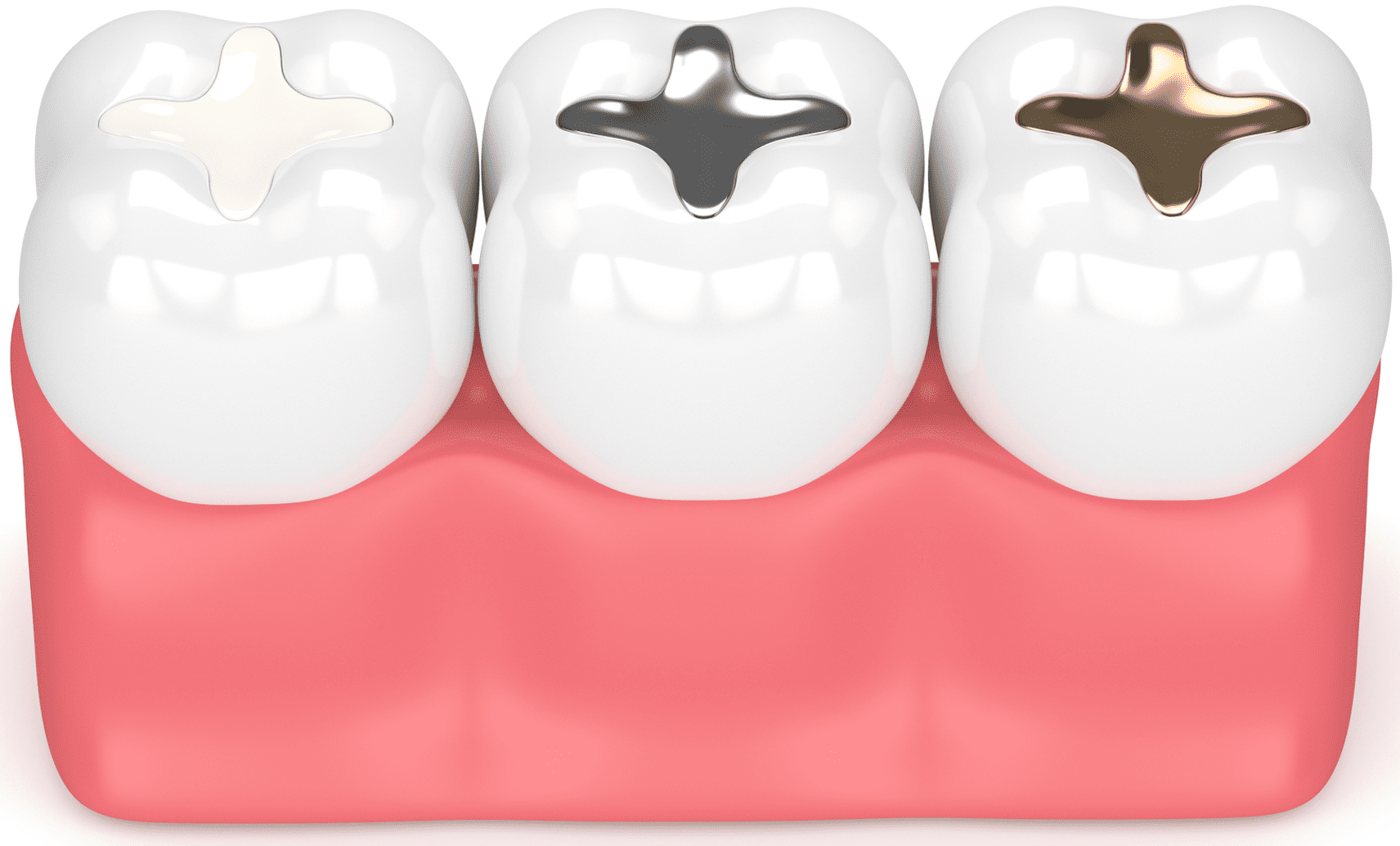While cavities are most common in children, they can be a problem for adults as well. They’re one of the main dental concerns we see. Cavities form when the tooth’s enamel wears down due to plaque and bacterial buildup. Dr. Rafat and Dr. Izadi offer tooth cavity treatment for children and adults in Hunt Valley, MD.

What Is A Tooth Cavity?
Tooth decay usually starts in the outer layer of the tooth, called enamel. Acid from bacteria breaks down the minerals in the enamel, creating a small hole or cavity. As the bacteria continue to produce acid, the cavity gets larger and eventually reaches the inner layer of the tooth, called dentin. At this point, a dentist needs to clean out the cavity and fill it.
But if a cavity is caught early during a routine checkup, applying a paste or gel with bioactive glass particles can actually reverse the decay. This can restore the tooth’s health without the need for drilling and filling!
While these products are still being developed, they could potentially lower dental care costs for many people. But regular cleanings, exams, and X-rays are still important to catch decay early.
At Valley Dental Health, we’re always looking for better ways to restore your smile. If you have any questions about your dental health, please feel free to contact us. If you have a cavity or your teeth are starting to show signs of decay, Dr. Izadi and Dr. Rafat may suggest different treatments based on the severity of your situation. The main goal is to get your tooth healthy again and stop further decay.
What Are the Signs I Have a Cavity?
A dentist can often find cavities before you notice any symptoms, which is why regular dental check-ups are important. Common symptoms of a cavity include:
- Toothache or pain in your tooth
- Sensitive teeth
- Holes in the teeth
- Sore or bleeding gums
Adults can also have problems with tooth decay, especially around the edges of dental crowns, fillings, or other restorations. Decay can also happen on the roots of teeth if your gums are receding.
Tooth Cavity Treatment in Hunt Valley, MD
Treating a cavity usually means getting a dental filling. Dr. Rafat might use a composite resin, porcelain, or gold filling. In some cases, he may place a dental crown to restore the tooth’s strength and function.
Drill-free Cavity Fillings
Thanks to advances in dental materials, composite fillings are now more reliable and last longer. But what if we could fix cavities without drilling or filling?
Recently, there’s been a focus on using bioactive particles to fill tiny holes in teeth, which can be a cause of tooth sensitivity. These particles, along with fluoride, are used in pastes that harden teeth and fill these small holes and reduce sensitivity.

Cavity Prevention
Cavity prevention starts with good brushing and flossing habits every day. Regular dental check-ups help catch problems early and keep teeth clean. Eating less sugary foods also helps prevent tooth decay. We recommend using fluoride toothpaste and drinking water with fluoride to strengthen teeth and stop cavities. Protecting your teeth now means fewer problems later.
Frequently Asked Questions
Do you want to learn more? We can help. Read answers to common questions about cavities and cavity treatment in Hunt Valley and Timonium, MD.
Can cavities go away on their own?
No, cavities don’t go away on their own. While you can slow down tooth decay, you can’t stop it completely without treatment. It’s important to get cavities filled to prevent further decay. If left untreated, a cavity can get so bad that your dentist might have to remove the tooth.
Do cavities hurt right away?
Not always. In the early stages, cavities may not cause any pain at all, which is why regular dental checkups are so important. You might only notice a problem when the decay gets deeper into the tooth, causing sensitivity to hot, cold, or sweet foods and drinks. Catching cavities early makes treatment easier and less uncomfortable.
How long can I wait before a cavity becomes a big problem?
If you don’t treat a cavity, it will keep getting worse over time. In some cases, the decay can get so severe that the tooth may need to be removed. Infection can continue to break down your tooth over 6 months to 5 years, depending on the situation. It’s best to get cavities filled as soon as your dentist finds them to save the tooth and stop the decay.
How long does it take to fill a cavity?
Filling a cavity usually takes about 20 to 45 minutes, but it can sometimes take up to an hour. The time depends on the size and location of the cavity. If you have more than one cavity, the appointment might last longer than an hour.
What happens if a cavity reaches the nerve of the tooth?
If a cavity reaches the tooth’s nerve, it can cause strong pain, sensitivity, or even a toothache that won’t go away. At this point, you may also develop a dental abscess, which creates a small pocket of pus at the tip of the tooth root.
A simple filling usually isn’t enough to fix this problem. We may recommend a root canal to remove the infected nerve and clean the inside of the tooth. Our office can also drain a tooth abscess and reduce the risk of infection spreading throughout the body.
What are the best ways to prevent cavities?
Here are some ways to prevent cavities:
- Visit the dentist regularly for professional cleanings
- Brush your teeth twice a day
- Floss once a day
- Eat a healthy diet and limit sugary snacks and sodas
Patient Review
Stop Tooth Pain and Infection
The best way to prevent cavities is to visit the dentist regularly. Schedule an appointment with our dentists at Valley Dental Health. We provide dental care to Hunt Valley, Lutherville, Cockeysville, Timonium, Sparks, Phoenix, and the nearby Baltimore areas. Call Valley Dental Health today at 443-733-6613 or request an appointment with us online.
